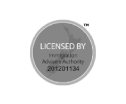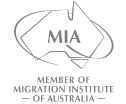For the discerning global investor, the decision to deploy tens of millions of dollars into a new jurisdiction is never just about the initial transaction. You’ve moved beyond pure ROI calculations. You’re orchestrating a multi-generational strategy, seeking a “safe harbor” that offers not just financial returns, but political stability, security, and a superior quality of life for your family.
In this high-stakes search, headlines about “holding foreign investors accountable” can sound alarming. They conjure images of bureaucratic overreach, shifting goalposts, and a punitive environment hostile to capital. But what if that framework for accountability wasn’t a risk, but one of the jurisdiction’s most compelling features?
This is the reality in New Zealand. Far from being an “impossible task,” the country’s approach to investor oversight is a transparent, predictable system designed to protect the integrity of its economy. For a sophisticated strategist like you, this very system is a core part of its value proposition—a guarantee of the stability you seek. Let’s explore why New Zealand’s accountability is a feature, not a flaw.
Redefining “Accountability”: From Threat to Partnership
In many parts of the world, “accountability” is a loaded term, often a veiled threat of expropriation or arbitrary rule changes. For the established investor, this is the ultimate risk—a landscape where the rules of the game can be rewritten after your capital is already committed.
New Zealand flips this concept on its head. Here, accountability is about partnership and predictability. It’s a two-way street based on a clear, upfront agreement.
- You Commit: To a specific investment that meets a defined set of criteria.
- New Zealand Commits: To providing a stable, secure, low-corruption environment with a strong rule of law, protecting your assets and offering a clear pathway to residency.
This is fundamentally different from a passive “golden visa.” It’s a strategic alignment. The country’s oversight mechanisms are in place not to punish success, but to ensure that the initial agreement is honored, safeguarding the economic and social fabric that attracted you in the first place.
The Core Mechanisms: How New Zealand Manages Investor Commitments
Accountability in New Zealand isn’t a vague concept; it’s managed by a clear and established entity: the Overseas Investment Office (OIO). For significant investments, particularly in sensitive land or major business assets, the OIO acts as the gatekeeper and long-term partner.
The “Benefit to New Zealand” Test
For direct investments that require consent, the cornerstone of the OIO’s process is the well-known ‘benefit to New Zealand’ test. This may sound like a hurdle, but for the investor motivated by productive capital deployment, it’s an opportunity. It allows you to formalize the positive impact your investment will have, whether through job creation, introducing new technology, or boosting export receipts. It turns your investment from a simple transaction into a tangible, recognized contribution.
Monitoring and Reporting: The Predictability Factor
After an investment is approved, the OIO’s role shifts to monitoring. This is where accountability comes into practice. Investors are typically required to report on their progress against the conditions of their consent.
For an investor with lawfully acquired, fully documented wealth, this is not an intrusion—it’s assurance. It proves the system is working. This transparency ensures that all major players are adhering to the same rules, which prevents the market from being undermined by less scrupulous actors and protects the reputation of foreign capital in the country. The OIO’s compliance strategy is focused on engagement and education first, confirming its role as a partner rather than a purely punitive body.
Navigating the Active Investor Plus Visa: A Modern Framework Built for You
Nowhere is this modern approach to accountability clearer than in New Zealand’s flagship Active Investor Plus visa. This program was redesigned specifically to address the major pain points of experienced global investors, replacing a notoriously complex predecessor.
Simplicity Over Complexity
The old system was a maze of confusing rules. The new visa offers a clear, two-tiered framework of “Direct” or a “Balanced” mix of direct investments, private equity, and listed equities. This “Balanced” category is a crucial on-ramp. It acknowledges your primary focus on wealth preservation by allowing a significant portion of your capital to be placed in familiar, lower-risk listed equities while you explore higher-growth direct opportunities—a level of flexibility rarely seen in investor visa programs.
A Framework Built for a Global Life
Perhaps the most significant advantage is the program’s respect for the realities of your life. Burdensome physical presence requirements are a non-starter when you’re managing global interests.
- Australia’s Significant Investor Visa: Typically requires 40 days per year.
- The UK’s Former Tier 1 (Investor) Visa: Had strict limits on days spent abroad for settlement.
New Zealand’s Active Investor Plus visa requires you to spend just 117 days in the country over the entire four-year investment period. This minimal and flexible requirement is a decisive advantage, acknowledging that you need a secure base, not a golden cage.
Respecting Your Track Record of Success
The program has also eliminated the arbitrary and, frankly, insulting hurdles common in other countries. There are no upper age limits and no English language requirements. Your track record of success and your ability to meet the NZ$15 million investment threshold are the primary qualifications. It’s a system designed for peers, not applicants who need their hands held.
When Things Go Wrong: Enforcement That Protects the Ecosystem
A framework is only as good as its enforcement. While the OIO prioritizes collaboration, it has a clear mandate to act when commitments are broken. To the legitimate investor, this is not a threat; it is a vital safeguard.
A system with teeth ensures that the promises made by all parties are kept, maintaining a level playing field and preserving the integrity of the New Zealand market. In recent years, enforcement actions have included substantial fines and divestment orders for non-compliance.
Seeing these actions shouldn’t cause alarm. It should inspire confidence. It is proof that New Zealand actively polices its own ecosystem, rooting out bad actors and ensuring that the “safe harbor” you are investing in remains genuinely safe, stable, and reputable for the long term. It protects your investment and your family’s future home from the reputational damage that unchecked, speculative capital can cause.
The Final Analysis: A Strategic Advantage
In an increasingly uncertain world, New Zealand presents a unique proposition. It offers the stability and security you demand, a world-class lifestyle, and the powerful strategic advantage of de facto access to live and work in Australia under the Trans-Tasman Travel Arrangement.
Yet, its most underrated feature may be its approach to accountability. It is a system built not on suspicion, but on clarity. It is a framework that respects your global lifestyle, values your expertise, and seeks to build a partnership for mutual benefit.
For the global strategist, the conclusion is clear: New Zealand’s accountability isn’t a lurking risk to be managed. It is an integral part of the deal—a seal of quality that guarantees the very stability and predictability you are searching for.










